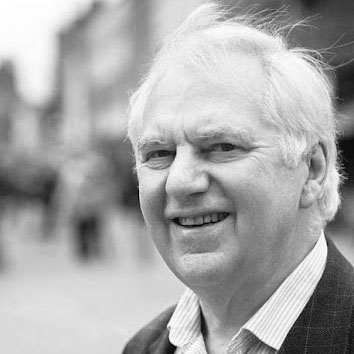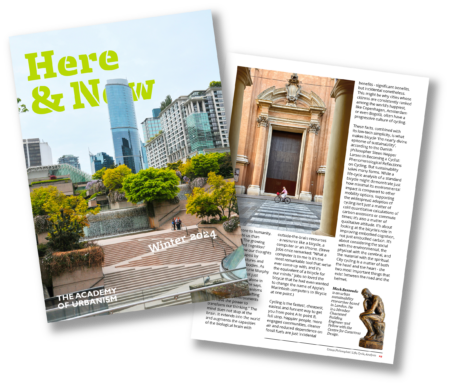In his new book Nigel Moor explores the impact of politics on shaping the environment. Nicholas Falk finds much to agree with in his analysis of the failings of our planning system and its ability to tackling climate change.
 In a very readable, well referenced and affordable book, Dr Nigel Moor draws on his rich personal experience as both a leading professional planner and senior local politician, most recently as cabinet member for climate change and the environment at Gloucestershire County Council. The book is useful not only in exposing the inadequacies of the British planning system, but also in documenting the many attempts at reform. In the first part he chronicles a miserable saga of one attempt after another to reconcile individual liberty with the wider public interest in an over-centralised country. Twenty One chapters and ten fascinating case studies bring out the role politicians have played in resolving major disputes.
In a very readable, well referenced and affordable book, Dr Nigel Moor draws on his rich personal experience as both a leading professional planner and senior local politician, most recently as cabinet member for climate change and the environment at Gloucestershire County Council. The book is useful not only in exposing the inadequacies of the British planning system, but also in documenting the many attempts at reform. In the first part he chronicles a miserable saga of one attempt after another to reconcile individual liberty with the wider public interest in an over-centralised country. Twenty One chapters and ten fascinating case studies bring out the role politicians have played in resolving major disputes.
There has been no shortage of ambition or academic research, but with government ministers responsible for planning rarely lasting more than a year before being reshuffled, it is not surprising that there is little continuity, as each politician tries to make their mark. Endless legal battles and government commissions produce little more than reports.
The result is that both the quality and the quantity of housing in the UK has lagged far behind demand for decades. Inequalities have widened, and climate change is disrupting all our futures. The first part of the book is therefore an excellent guide to the sad story of British planning in the 20th century, part of which appeared in an earlier book in 2010. As the author writes:
The challenge for politicians is to demonstrate that they can take decisions looking to the longer term rather than for short-term electoral advantage, to dispel the scepticism of the professional planning elite who have argued for almost a hundred years that only they are capable of this attribute
In the second and new part of the book, Nigel Moor addresses what England needs to do to address the climate crisis. While delays in the planning system may have had the effect of conserving the character of much of the English landscape as well as boosting property values, it is worryingly ill suited to the fundamental change that the spatial planning system must bring about to deal with global heating and flooding. We need to be as bold as we were when building the New Towns, but regrettably we seem to have lost this level of ambition, unlike other places in Europe, I was interested to read that:
From the 1870s, cities in many German states had legal powers to plan and control town extensions, and Britain was perceived as lagging behind its continental rival.
Could the UK’s lamentable economic performance and low productivity be bound up with our failure to make planning work as intended? Much depends on Westminster, and I was heartened to learn of one Conservative Minister :
Gummer was much influenced by a report commissioned from the research group URBED, which reported in 1994 on the future of town centres. Its findings convinced him of the need not only to encourage new shopping development to locations where it could reinforce the town centre, but to discourage development on greenfield sites on the edge of centres, where it would result in an unacceptable impact on a town.
Yet a successor dismissed our report on garden cities without even reading it, even though ‘Between 1950 and 2012, 74 per cent of the increase in Britain’s housing costs was accounted for by increases in the cost of land’
Nigel Moor’s latest book should be read by anyone seeking to understand the curious tale of Britain’s decline, but who also wants evidence of the need for fundamental change. He ends with some practical proposals for reform in the light of the climate crisis, which include rationalising the structure of local government, and using infrastructure plans to join up transport, housing and employment. Let us hope that strategic planning gets back on to the agenda for the next government.






